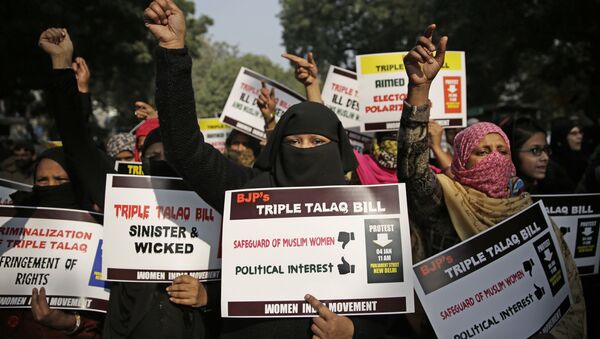The legislation was passed by both houses of the Indian Parliament – the lower House or Lok Sabha on the 25th of July and the upper house or Rajya Sabha on the 30th of July.
President Kovind himself had termed the passage of the bill as “a milestone in the quest for gender justice".
Prime Minister Narendra Modi has described the practice in Islam as “archaic and medieval”, saying it is something which has finally been confined to the “dustbin of history”.
Bharatiya Janata Party’s President and Home Minister of India Amit Shah described the passage of the legislation as fulfilling his party’s commitment, “which will free Muslim women from the curse of this regressive practice”.
Opposition parties had hotly opposed the bill, terming it “discriminatory” to Muslim men. They contended there was no need for the bill, as instant divorce has already been declared void by the Supreme Court of India. Several regional parties boycotted the voting on the Bill in both houses of Parliament, facilitating its passage without much ado.
India’s Supreme Court had in its judgement in August 2017 ruled the practice of triple talaq “unconstitutional”. The court had also asked the government to frame new divorce legislation to replace the abolished practice.


